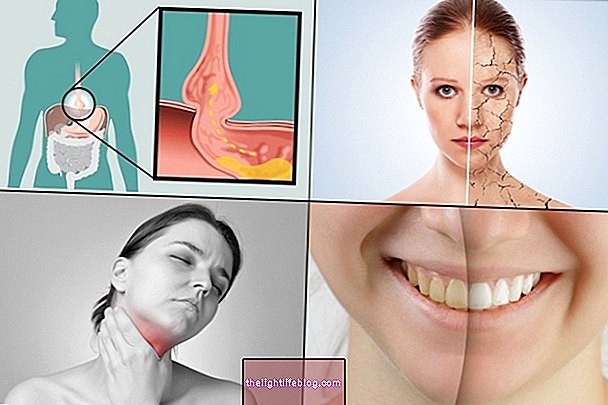Psychoanalysis is a type of psychotherapy, developed by the famous doctor Sigmund Freud, which serves to help people better understand their feelings and emotions, as well as helping to identify how the unconscious influences daily thoughts and actions.
The psychologist or psychiatrist can use this type of approach to help treat people with anxiety, depression and other types of disorders. However, psychoanalysis can also be performed by anyone who wants to understand their personal experiences, who have relationship problems or difficulty concentrating.
Psychoanalysis sessions can be done with adults, teenagers and children, individually or in groups and last an average of 45 minutes, depending on the therapist. Before starting the sessions, it is important to seek qualified professionals so that the results are positive and satisfactory.

How it is done
Therapy sessions with psychoanalysis take place in an office or clinic of a therapist or psychoanalyst, who can be a psychologist or psychiatrist, and last an average of 45 minutes. The frequency and number of sessions are defined by the therapist, depending on the person to person.
During a session the person lies down on the sofa, called a divan, and starts talking about feelings, behaviors, conflicts and does not make eye contact with the therapist, so that he is not ashamed to say what he feels. As in other types of psychotherapy, when the person is speaking, the therapist will look for the source of the psychic problems and help the person to look for ways to deal with these issues. See more about the main types of psychotherapy.
In psychoanalysis, the person can speak whatever comes to mind, without any restrictions and should not worry about feelings of guilt or shame, as this is how the therapist will be able to help in the search for answers to current problems, and the information given are always kept secret.
What is it for
Through psychoanalysis a person can acquire knowledge from the unconscious part of his mind and this can help to understand feelings, emotions and internal conflicts. In this way, this type of therapy can be indicated for anyone who wants to know himself and who wants to understand why he feels certain emotions.
The therapist, when talking to the person, can help to identify the causes that lead to the appearance of symptoms of anxiety, depression and some types of disorders. However, regardless of the performance of psychoanalysis, it is important to follow the recommendations of a psychiatrist, as it is often necessary to use medications for the treatment.
In addition, other problems that psychoanalysis can help address include feelings of isolation, severe mood swings, low self-esteem, sexual difficulties, constant unhappiness, conflicts between people, difficulty concentrating, excessive worry, and self-destructive behavior, such as using alcohol or drugs.

Methods of psychoanalytic treatment
Psychoanalysis has different approaches and techniques that will be indicated according to the therapist's recommendation, depending on the needs of each person. These techniques can be:
- Psychodynamics: it is a technique used with adults, where the therapist sits facing the person. Often your goals are more focused on solving a particular type of problem like depression and anxiety;
- Psychodrama: also used in adults, which consists of forming a fictional scene similar to some real event in a person's life, such as a fight, for example. The therapist analyzes the person's actions to understand his feelings and thoughts;
- Child: technique used in children and adolescents with specific problems, such as depression, insomnia, extreme aggression, obsessive thinking, learning difficulties and eating disorders;
- Couples: it serves to understand the dynamics of relationships between couples, helping to relieve tensions and assisting in the search for conflict resolution;
- Psychoanalytic groups: it is when the therapist helps a group of people to understand their emotions together, supporting each other.
Psychoanalysis is used to identify and treat many problems and conditions, and uses many different techniques. Although it can be a long process, psychotherapy with psychoanalysis benefits the treatment of various health conditions, such as depression and anxiety and helps people to live better with themselves and with others, regardless of the technique used.
Words the doctor can use
To help the person understand the feelings and emotions, the therapist can use some words that are used a lot in this type of psychotherapy, such as:
- Unconscious: it is the part of the mind that is not recognized through everyday thoughts, they are hidden feelings and that a person does not know he has;
- Children's experiences: these are situations that occurred during childhood, such as desires and fears that were not resolved at that time and that generate conflicts in adulthood;
- Meaning of dreams: it is used to understand unrecognized desires and fantasies when the person is awake, and these dreams often express unconscious meanings;
- The ego, the id and the superego: the ego is the part of the mind that rebukes actions and feelings, the id is the part where the memories of the unconscious are and the superego is the conscience.
Although there are specific techniques of psychoanalysis, each therapist can use different approaches depending on each person and the goals they want to achieve.
Was this information helpful?
Yes No
Your opinion is important! Write here how we can improve our text:
Any questions? Click here to be answered.
Email in which you want to receive a reply:
Check the confirmation email we sent you.
Your name:
Reason for visit:
--- Choose your reason --- DiseaseLive betterHelp another personGain knowledge
Are you a health professional?
NoMedicalPharmaceuticalsNurseNutritionistBiomedicalPhysiotherapistBeauticianOther
Bibliography
- INTERNATIONAL PSYCHOANALYTICAL ASSOCIATION. ABOUT PSYCHOANALYSIS. 2019. Available at:. Accessed on 12 Nov 2019
- AMERICAN PSYCHOLOGICAL ASSOCIATION. Psychoanalysis in Psychology. Available in: . Accessed on 12 Nov 2019
- SANTOS, Luciene. Psychoanalysis in the contemporary world. Vol.41. 77.ed; 65 - 74, 2019
- THE NATIONAL INSTITUTE OF MENTAL HEALTH. Psychotherapies. 2016. Available at:. Accessed on 13 Nov 2019


























